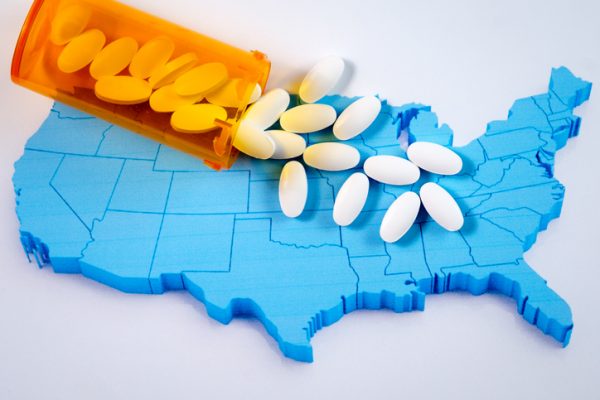
Physician medication dispensing refers to the practice of doctors dispensing medication directly to patients instead of writing prescriptions which patients then take to a pharmacy to be filled.
While the practice has always been had its positive and negative aspects, the recent spread of the coronavirus has brought new arguments to the debate, again both for and against.

NEMT Partner Guide: Why Payers and Providers Should Choose MediDrive’s TMS
Alan Murray on improving access for medical transportation.
The Case for Point-of-Care Dispensing
Physician dispensing companies point to long lists of benefits from dispensing medication at the point of care, but the biggest ones are all based on one fact: patients who get their prescriptions filled at the doctor’s office don’t have to go to a pharmacy.
Before the pandemic, this resulted in increased patient convenience and ensured that patients all actually received their medicine. (One-third of prescriptions are otherwise never filled). Today, reduced pharmacy visits means fewer opportunities for the coronavirus and other illnesses to spread.
Reducing pharmacy visits is especially impactful since many people getting prescriptions filled are sick, if not with coronavirus then with something else. They may have reduced ability to fight off infectious diseases that other pharmacy visitors may be carrying, and/or may spread their illnesses to other visitors and staff.
The benefit of eliminating unnecessary trips to a pharmacy is especially acute when considering that many people rely on public transportation or shared vehicles to travel, creating further opportunities for viruses to spread.

The Power of One: Redefining Healthcare with an AI-Driven Unified Platform
In a landscape where complexity has long been the norm, the power of one lies not just in unification, but in intelligence and automation.
In addition, while many pharmacies are among the most attuned to social distancing and public safety considerations, risk factors abound. While U.S. data isn’t available, a survey of U.K. pharmacists since the Covid crisis broke showed that 40% of pharmacists have been unable to maintain social distancing from patients.
That said, physician dispensing will never (and should never) replace pharmacists. Not all medical practitioners are allowed to dispense; most of those who are allowed to do so choose not to; and industry economics leads even dispensing doctors to only dispense a small number of high-volume generic drugs. For the vast majority of prescriptions, as well as for the other services that pharmacists provide, pharmacies are here to stay.
The Case Against Point of Care Dispensing
Before the pandemic, opponents of in-office dispensing tended to argue that the practice generated higher costs for patients, created financial incentives for doctors to over-prescribe certain drugs, and threatened the role of the pharmacist role in patient safety as a second set of eyes.
While it is difficult to deny that reducing pharmacy visits could have a positive effect on public health, one could argue that argue doctors’ officers are not any better set up to practice social distancing than pharmacies. A patient requiring refills may be better served by going to a pharmacy, many of which were offering drive-through dispensing services even before the pandemic, rather than back to her or his doctor.
Doctors’ offices have less ability to invest in their dispensing systems. A pharmacist is dispensing prescriptions all day, but even in a practice that does dispense medication, a doctor or physician’s assistant may only do so a couple of times daily.
Opponents of physician dispensing also point out that most regulatory regimes allow doctors to dispense short-term supplies of medication if there is an urgent patient need. That has not changed during the coronavirus, and, so, according to this argument, changes to regulations are not necessary.
The Road Ahead
While it is nearly impossible to predict what will happen with the pandemic or how it will affect the delivery of prescription medicines to patients, there are significant arguments to be made today that physician dispensing can provide a public health benefit by reducing – even if only at the margin – unnecessary trips and pharmacy visits. That said, the broader discussion about the role of doctors vs. pharmacists in prescription dispensing remains unsolved. Further research, especially on the effect of incentives on prescription behavior in states that have legalized the practice, is highly warranted.
Photo: Stuart Ritchie, Getty Images
Nicholas Benedict is Managing Director of King, Edward, specializing in pharmacy and health care. He has a B.A. from McGill University and an M.B.A. from the Wharton School of the University of Pennsylvania.
This post appears through the MedCity Influencers program. Anyone can publish their perspective on business and innovation in healthcare on MedCity News through MedCity Influencers. Click here to find out how.






